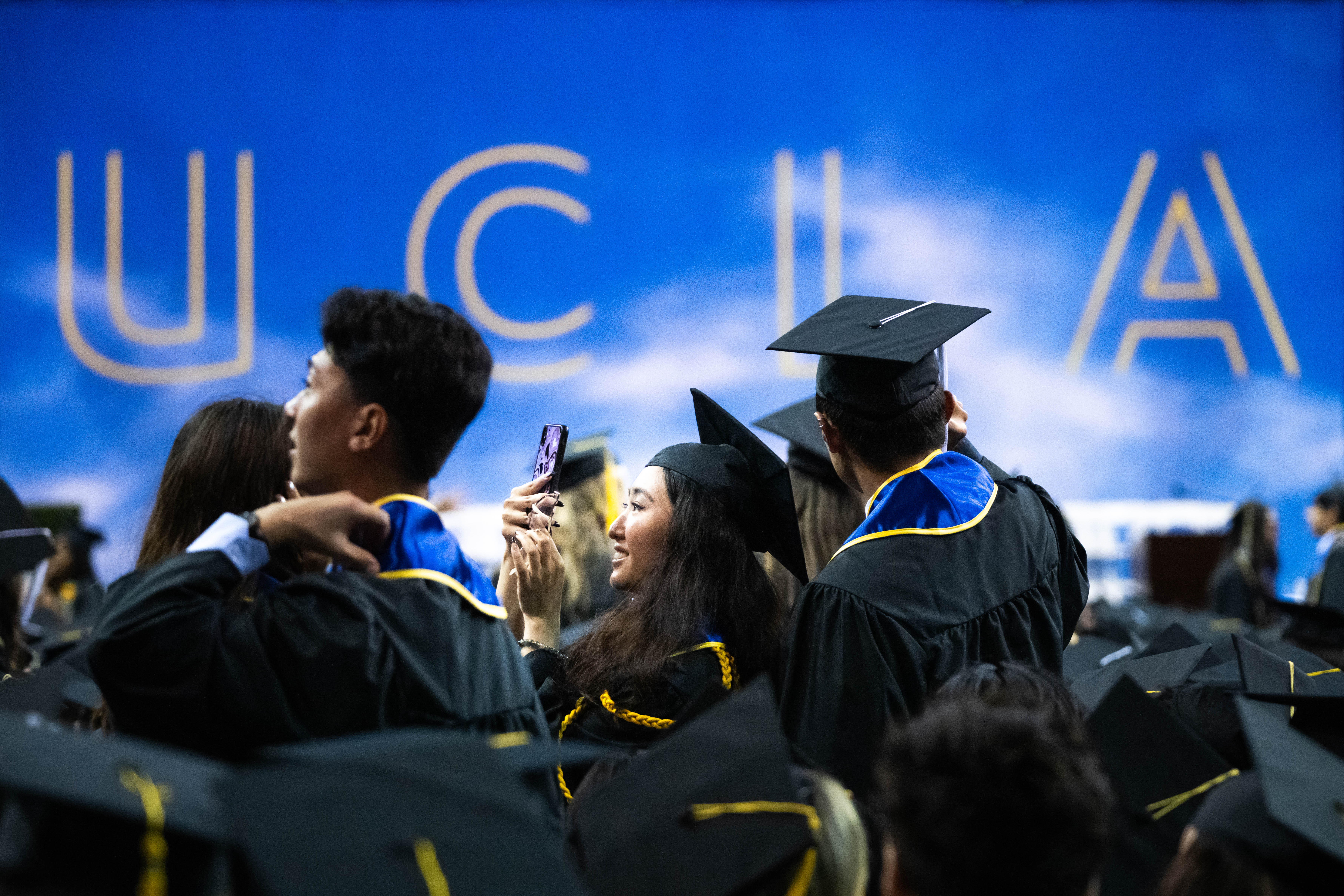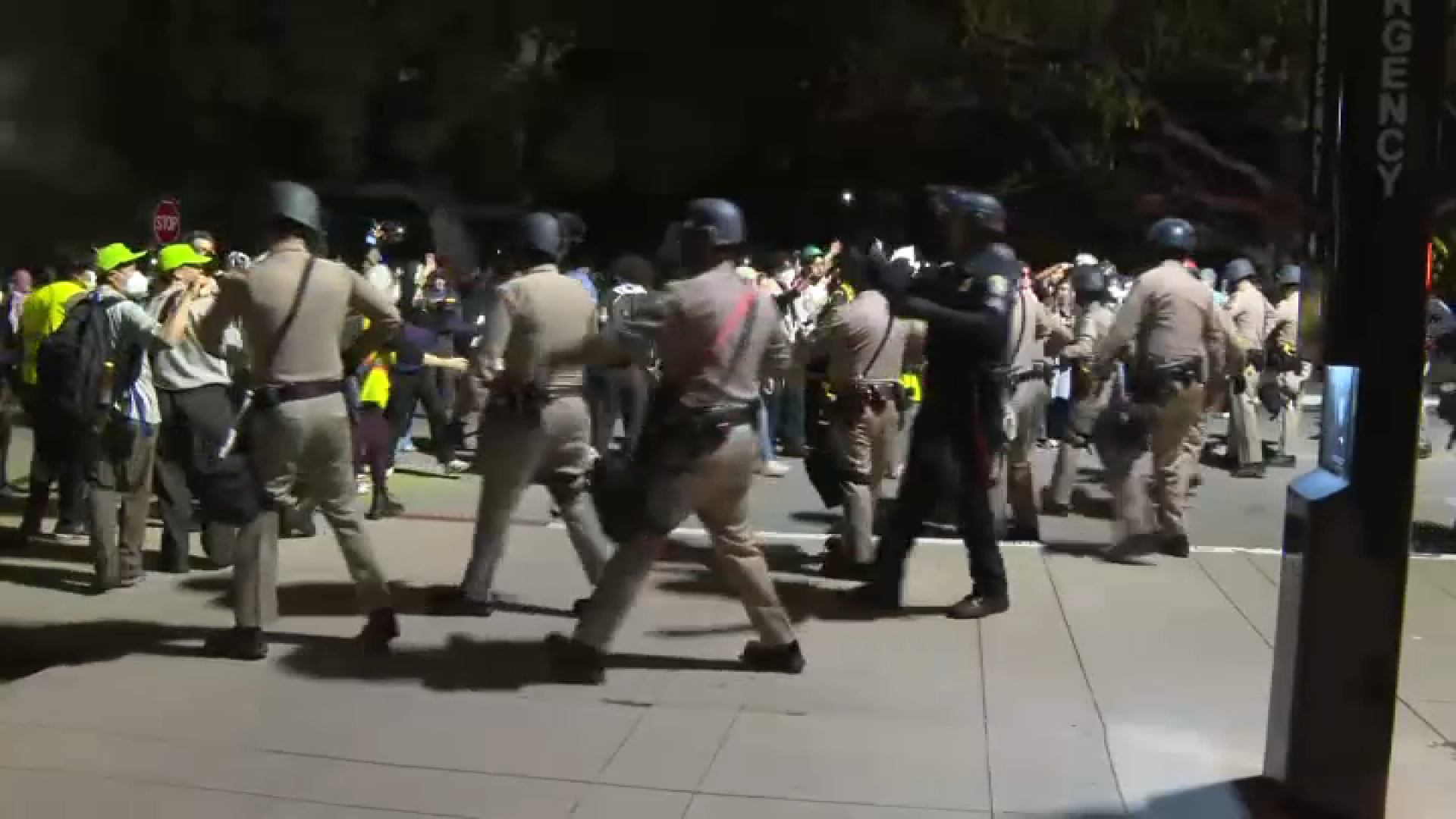University of Miami President Julio Frenk was unanimously selected by the University of California Board of Regents Wednesday to become UCLA's next chancellor.
Frenk, who will be UCLA's first Latino chancellor, succeeds Chancellor Gene Block, who earlier announced plans to step down in July. He inherits a campus that has been roiled by protests and clashes with police in recent weeks over the war in Gaza.
Frenk has been president at the University of Miami since 2015. A fourth-generation physician, Frenk has an extensive public health career, including a role as a founding director-general of the National Institute of Public Health in Mexico, executive director in charge of Evidence and Information for Policy at the World Health Organization and as senior fellow in the global health program of the Bill & Melinda Gates Foundation, among other leadership positions.
Frenk served as Mexico's Federal Secretary of Health from 2000 to 2006 and was credited with overhauling the nation's health system and expanding care to millions of uninsured people.
Get top local stories in Southern California delivered to you every morning. Sign up for NBC LA's News Headlines newsletter.
His paternal grandparents fled Germany in the early 1930s to build a life in Mexico.
UCLA's seventh chancellor will be Julio Frenk — current president of the University of Miami and a renowned public health leader whose career has spanned the United States and Mexico.
— UCLA (@UCLA) June 12, 2024
Learn more about this historic appointment on UCLA Newsroom: https://t.co/ydwmVxPGyc pic.twitter.com/9ytb7qvu3N
"Dr. Frenk has demonstrated a powerful commitment to the health and well-being of people, institutions, and systems around the world,'' UC President Dr. Michael Drake said. "His leadership will build on the growth and strength the campus has achieved under Chancellor Block and accelerate UCLA's brilliant trajectory in service to Los Angeles, the nation, and the world.''
UCLA Provost Darnell Hunt will serve as interim chancellor until Frenk takes over in January 2025. Block is stepping
down on July 31.
Block, who has faced criticism over the university's response to the pro-Palestinian protests and a violent confrontation at a protest encampment, has been chancellor of the Westwood campus since 2007.
"As I near the end of my time as UCLA's chancellor -- a role that remains the greatest honor of my professional life -- I am filled with many emotions, but above all an overwhelming gratitude for every person who has made the UCLA community so special," Block wrote in a message to the campus community last week. "So in closing, I ant to simply offer you my thanks. Thank you for your dedication, creativity, resolve and commitment to excellence. Thank you for the compassion, respect and support you have shown one another. Thank you for carrying out our university's important mission, and thank you for representing the very best of public higher education."
Block testified last month before a House committee in Washington, D.C. about the campus protests, the law enforcement response and allegations of antisemitism.
The UCLA protests reached a flashpoint on April 30 when counterdemonstrators attacked a pro-Palestinian encampment, throwing traffic cones, releasing pepper spray and tearing down barriers. Fighting continued for several hours before police stepped in, and no one was arrested. At least 15 protesters suffered injuries.
The large encampment that formed in mid-April was cleared out in an overnight police operation that included 209 arrests. Tents, barriers, fencing and other items were removed from the encampment covering grass in front of campus buildings.
Tensions remained high Monday, when more protesters gathered on campus, drawing a large police response. About 25 arrests were reported, some due to damage to property.
"At UCLA, even in dark times there is still so, so much light."
The new chancellor will inherit an environment of unrest, including accusations of unfair labor practices by unionized employees, demands for amnesty for those arrested, a congressional inquiry into the campus' response to antisemitism, lawsuits accusing the university of failing to protect Jewish students and accusations
by protesters of excessive force by campus police and interference with free-speech rights.
"The war's impact on our campus reached a crescendo in the last six weeks, and this period now looms large in UCLA's collective consciousness," Block said. "I do not wish to downplay the anxiety people continue to feel, or the significant healing that we will need to do. I do believe, though, that it is important to remember that our university, our community and this academic year are not defined solely by our current, difficult chapter."
The university's commencement ceremonies begin Friday, with departmental ceremonies planned throughout the weekend. It was unclear if those events will be disrupted by additional protests, as pro-Palestine activists continue to demand that the university divest from all businesses tied to Israel.
After stepping down, Block will remain a member of the UCLA faculty. He intends to return to the lab and continue his research as a member of the Department of Psychiatry and Biobehavioral Sciences within the David Geffen School of Medicine and in the Department of Integrative Biology and Physiology within the UCLA College.
When Block announced his plans last year to step down as chancellor, UCLA highlighted Block's key achievements during his tenure, including UCLA ranking as the No. 1 public university for six years running -- up from No. 4 when he joined the university.
Block increased student enrollment by 24%, while the university became the first and only UC school to guarantee housing for undergrad students and built 15 residential buildings, according to UCLA.
Block also steered the university through the pandemic.
He has praised the university's research skills that delivered five Nobel Prizes in 10 years, and nearly doubled external annual research funding, according to UCLA.
Last year, the university launched UCLA South Bay on 35.5 acres on the Palos Verdes Peninsula, and UCLA Downtown, a high-rise building in downtown Los Angeles.



